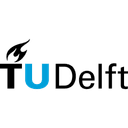This course is part of Mastering Probability and Statistics.
This advanced mathematics course provides a thorough review of probability theory fundamentals essential for engineering and science. Students explore discrete and continuous random variables, their properties, and applications. The curriculum covers probability spaces, distributions, limiting theorems, and simulation techniques. Through the Grasple platform, learners receive immediate feedback on exercises, making it ideal for those preparing for graduate studies or refreshing their knowledge for professional applications.
Instructors:
English
Arabic, German, English, 9 more
What you'll learn
Understand discrete and continuous random variables and their properties
Calculate expectations and variances of random variables
Analyze interactions between multiple random variables
Apply the Central Limit Theorem to real-world problems
Perform Monte Carlo simulations for practical applications
Model real-life situations using probability theory
Skills you'll gain
This course includes:
PreRecorded video
Graded assignments, Exams
Access on Mobile, Tablet, Desktop
Limited Access access
Shareable certificate
Closed caption
Get a Completion Certificate
Share your certificate with prospective employers and your professional network on LinkedIn.
Created by
Provided by

Top companies offer this course to their employees
Top companies provide this course to enhance their employees' skills, ensuring they excel in handling complex projects and drive organizational success.





There are 6 modules in this course
This comprehensive review course covers fundamental concepts in probability theory, essential for engineering and scientific applications. Beginning with probability spaces and basic concepts, the curriculum progresses through discrete and continuous random variables, multivariate distributions, and limiting theorems. Students explore various probability distributions, their properties, and applications. The course emphasizes practical application through simulation techniques and real-world examples, providing a solid foundation for advanced studies in engineering, finance, and data analysis.
Probability Spaces and General Concepts
Module 1 · 1 Weeks to complete
Discrete Random Variables
Module 2 · 1 Weeks to complete
Continuous Random Variables
Module 3 · 1 Weeks to complete
Multivariate Random Variables
Module 4 · 1 Weeks to complete
Limiting Theorems
Module 5 · 1 Weeks to complete
Simulation
Module 6 · 1 Weeks to complete
Fee Structure
Individual course purchase is not available - to enroll in this course with a certificate, you need to purchase the complete Professional Certificate Course. For enrollment and detailed fee structure, visit the following: Mastering Probability and Statistics
Instructors

4 Courses
A Dedicated Mathematics Educator and Researcher at TU Delft
Dr. Christophe Smet serves as a distinguished lecturer at TU Delft, specializing in teaching bachelor-level courses in Probability Theory, Statistics, Calculus, and Linear Algebra. He has made significant contributions to mathematics education, notably leading the development of an extensive collection of 535 open-access Linear Algebra exercises that benefit engineering students across multiple disciplines. His academic journey includes teaching experiences at the universities of Leuven and Antwerp, with his doctoral research focused on Classical Analysis, particularly investigating techniques for proving the irrationality of constants. While his initial research centered on orthogonal polynomials and Painlevé equations, his interests have evolved to encompass both particle physics and astrophysics. At TU Delft, he actively participates in creating innovative educational content, including parameterized exercises that allow students to practice with varying values, and has been instrumental in developing comprehensive probability theory courses that cover everything from basic concepts to advanced applications in engineering

4 Courses
A Pioneering Leader in Educational Innovation at TU Delft
Professor Annoesjka Cabo stands as a distinguished figure at TU Delft, serving as both the Academic Director of the Teaching Academy and Director of Education at the Faculty of Electrical Engineering, Mathematics and Computer Science since July 2021. Her expertise centers on Statistics for Innovation in Education, where she leads groundbreaking initiatives in mathematics education reform. She has spearheaded the PRoject Innovation Mathematics Education (PRIME), a comprehensive program aimed at redesigning mathematics courses for engineering students through blended learning approaches. Her significant contributions include implementing the "Prepare, Participate, Practice" methodology, which has demonstrably improved student engagement and academic performance across multiple engineering disciplines. As the Academic Director of the Teaching Academy, she oversees four key elements: Community, Teaching Lab, Programme, and Facilitation Team, working to enhance engineering education through innovation and collaboration. Her research focuses on developing statistical models to measure the effectiveness of educational innovations, particularly in mathematics education, and her work has significantly influenced how engineering mathematics is taught at TU Delft, leading to improved student outcomes and more effective teaching methodologies.
Testimonials
Testimonials and success stories are a testament to the quality of this program and its impact on your career and learning journey. Be the first to help others make an informed decision by sharing your review of the course.
Frequently asked questions
Below are some of the most commonly asked questions about this course. We aim to provide clear and concise answers to help you better understand the course content, structure, and any other relevant information. If you have any additional questions or if your question is not listed here, please don't hesitate to reach out to our support team for further assistance.



